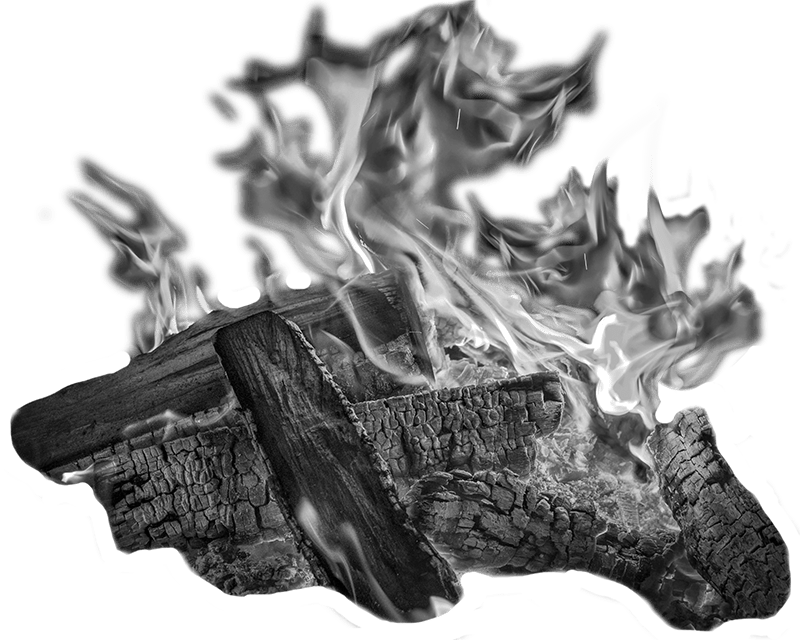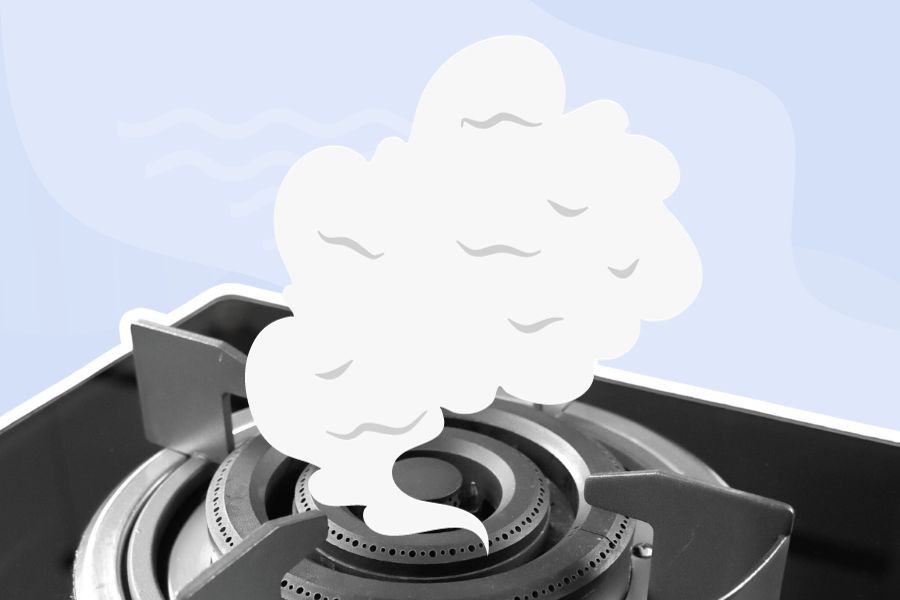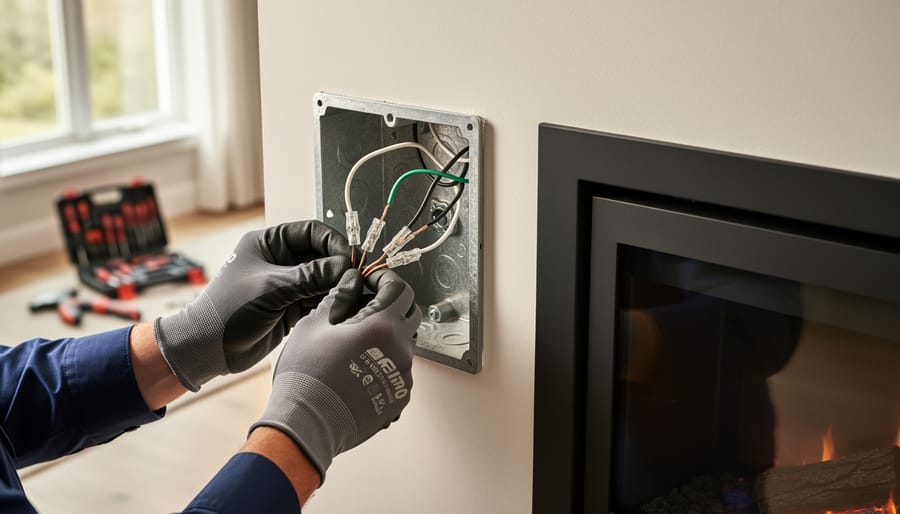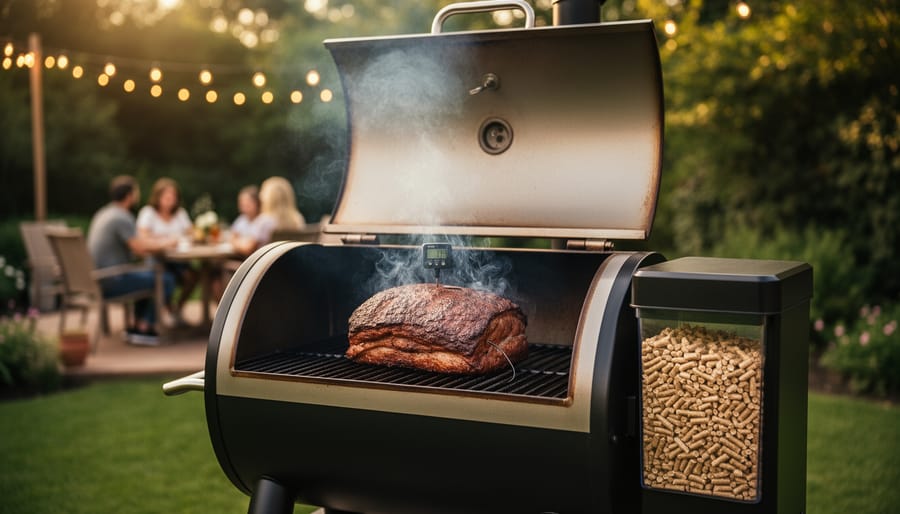If you love to cook, a gas stove is probably one of the most important appliances in your kitchen. But what do you do when you notice that your gas stove is leaking gas from one of the burners? This can be a concerning issue, especially regarding the safety of your home.
I’ve been there too. I remember coming home from work and smelling gas, only to find that my stove was leaking. It was a scary moment, but I was able to take the necessary steps to fix the problem.
In this post, we’re going to explore what causes gas stoves to leak from the burners and answer all of your questions, such as:
- Cause of gas leaking from Stove
- How to Fix this problem?
So, let’s find out everything you should know about gas stove leaks and how to keep your kitchen safe!
Causes of a Gas Stove Leak: Understanding Why Your Gas Stove is Leaking Gas
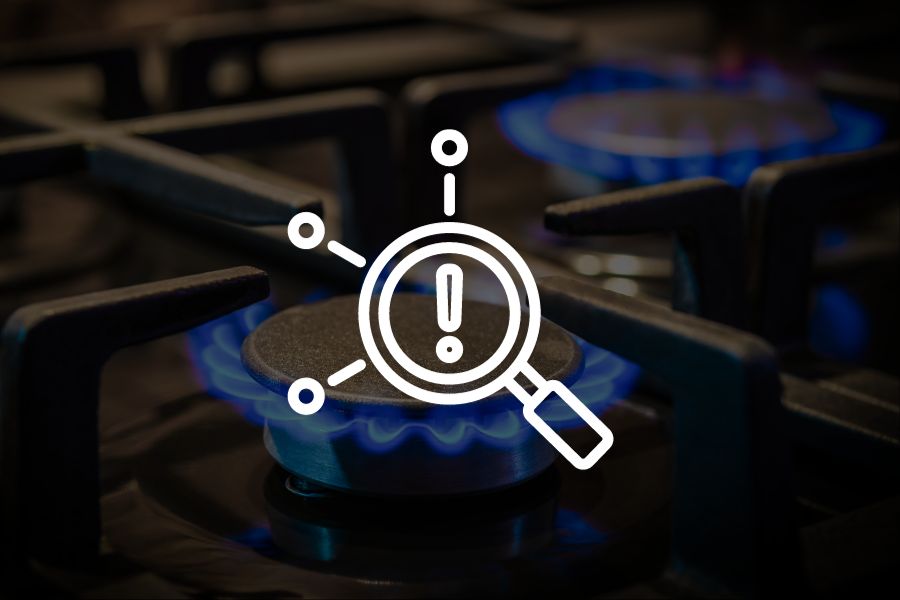
Understanding the root cause of a gas leak from your stove’s burner is crucial for effective troubleshooting. Several factors could contribute to a gas stove leaking gas, such as:
- Stove Age: Like any appliance, gas stoves have a lifespan. Over time, wear and tear can lead to leaks, especially in stoves that have seen frequent use or are simply getting old.
- Component Wear: Burners and valves are the heart of any gas stove. When these critical components become worn or damaged—often due to corrosion or daily wear and tear—they can become the source of a gas leak.
- Faulty Installation: A gas leak can also stem from improper installation. This could happen if the stove isn’t level or the gas supply hose isn’t securely connected, affecting the integrity of the gas line.
- Neglected Maintenance: Poor upkeep, such as failing to clean or maintain your gas appliance, can result in debris build-up. This can obstruct the burners and become another cause for leaking gas.
Once you’ve pinpointed the cause of the gas leak from your stove, you can take targeted action. Whether it’s tightening a loose connection or replacing a faulty component, resolving a gas stove leak can often be straightforward and relatively simple.
Symptoms of Gas Stove Leaking Gas from Burner: Signs of a Gas Leak in Your Home
Recognizing the signs of a gas leak from your stove is vital for maintaining a safe home environment. Here’s what to watch out for to identify a gas stove leak:
- Odor and Presence of Gas: One of the most glaring indicators of a gas leak is the smell of natural gas or propane near the stove. Since natural gas is odorless, a “rotten egg” smell is often added to make it easier to detect.
- Flame Behavior: If you notice the flames on your burners are yellow or flickering, this could be a sign of a gas leak. Such unusual flame activity is often due to gas in the air, creating a hazardous situation.
- Reduced Burner Heat: A decline in the heat output from your burners may also signal a gas leak. This can happen when gas escapes from the burners instead of properly fueling the flame.
If you suspect a gas leak in your home, immediate action is crucial. Turn off the gas supply and ventilate the area as your first step toward ensuring safety.
Moreover, avoid using electrical switches and appliances, as they generate sparks capable of igniting the escaping gas. If the leak is significant or you’re uncertain how to proceed, it’s wise to evacuate the area and call for professional assistance.
Safety Precautions: Steps to Take When You Detect a Gas Leak
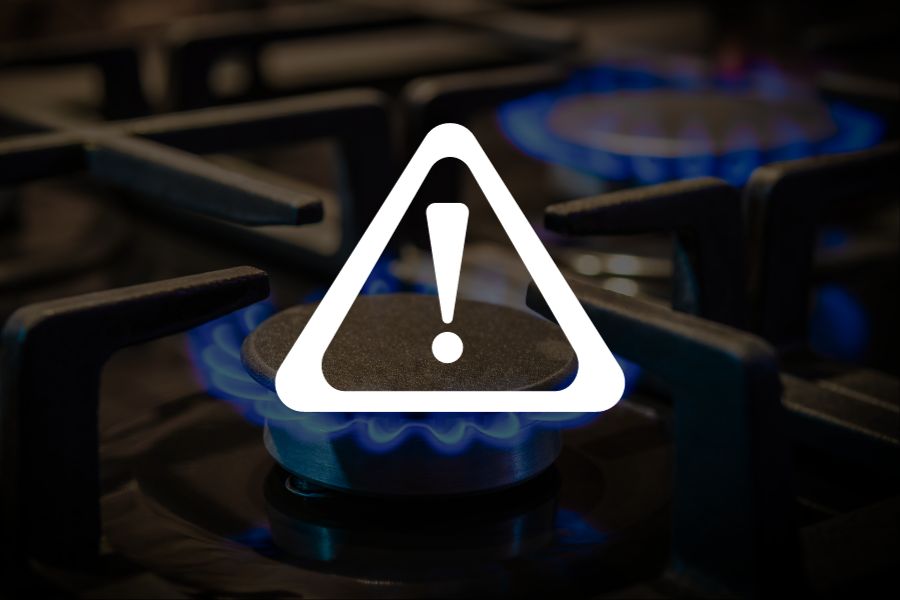
Gas stove leaks are a serious safety concern and can cause harm to you and your home if not appropriately addressed. Here are some safety precautions you should follow when dealing with a gas stove leak:
- Turn off the Gas Supply: The first step in dealing with a gas stove leak is to turn off the gas supply. This can usually be done by turning the knob on the stove to the “off” position or turning off the main gas supply valve to your home.
- Ventilate the Area: Once you have turned off the gas supply, it’s essential to ventilate the area to clear out any gas that may have leaked. Open windows and doors and use fans to circulate fresh air.
- Avoid Electrical Switches and Appliances: Avoid using electrical switches, appliances, and even cell phones, as they can create sparks that could ignite the gas.
- Seek Professional Help: If the leak is severe or you are unsure what to do, it’s best to evacuate the area and seek professional help. Contact your local gas company or a licensed plumber to assess and repair the leak.
- Follow Manufacturer’s Instructions: When working on your gas stove, always follow the manufacturer’s instructions and use the recommended tools and parts. Improper repairs or modifications can worsen the situation and create additional safety hazards.
These safety precautions will help protect you and your home from the potential dangers of a gas stove leak. With the proper knowledge and tools, you can repair a gas stove leak quickly and efficiently, so you can get back to cooking safely and confidently.
How to Fix Gas Stove Leaking Gas from Burner? Remedies for Leaking Gas
If you suspect your gas stove is leaking gas from the burner, immediate action is crucial to safeguard your home. Fortunately, resolving a gas leak is often straightforward and can usually be accomplished by adhering to the following steps:
- Shut Off the Gas: The initial step in tackling a gas stove leak is to turn off the gas supply. This can typically be done by rotating the stove’s knob to the “off” position or shutting off your home’s main gas valve.
- Identify the Leak Source: After the gas supply is off, your next task is to locate the leak. A soap and water solution can be effective for this; it will bubble upon contact with the escaping gas. Focus on connections, valves, and burners to pinpoint the source of the gas leak.
- Secure Connections: If the leak is due to a loose connection, simply tightening it may resolve the issue. Exercise caution to tighten securely without damaging the gas line.
- Replace Aged Components: Should the leak stem from worn-out parts like burners or valves, these will need replacement. Consult your gas stove’s manual for specific guidance, or call for professional help if uncertain.
- Clear Debris: If debris is obstructing the burners and causing the leak, a thorough cleaning is in order. Utilize a soft brush or cloth to remove debris and reassemble the burners.
- Reignite the Stove: Once you’ve addressed the leak and reassembled all components, it’s time to reignite the stove. Follow the manufacturer’s instructions to turn the gas back on safely.
By adhering to these steps, you should be able to resolve a gas leak from your stove efficiently. If you’re unsure of any step or if the leak is severe, it’s always advisable to seek professional assistance to ensure the safety of your home.
Prevention Tips: How to Prevent Gas Leaks from Stoves
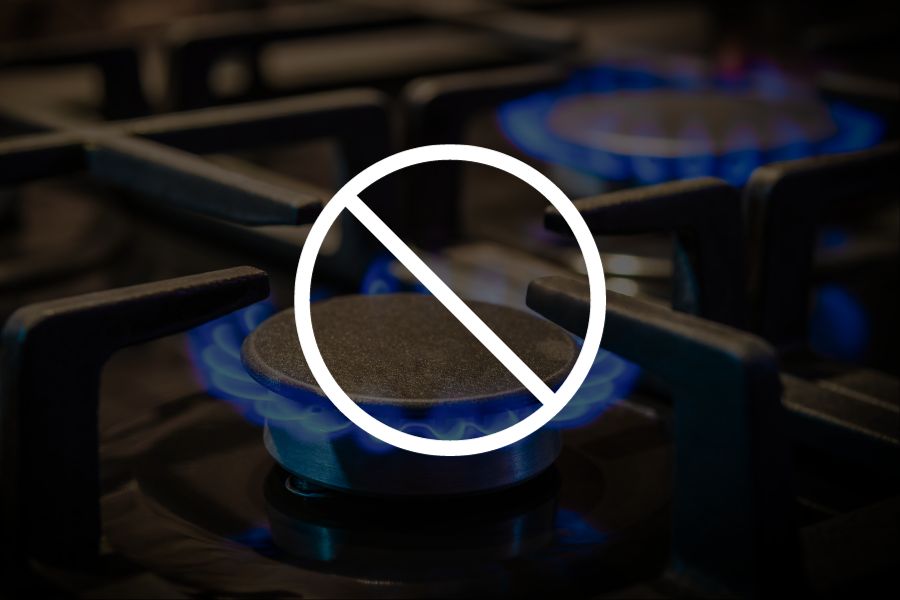
Preventing the gas stove from leaking gas from the burner is key to ensuring the safety of your home and avoiding the hassle of fixing leaks in the future. Here are some prevention tips to keep in mind:
- Regular maintenance: Regular maintenance is critical to preventing gas stove leaks. Check the connections and burners regularly for any signs of wear and tear. Also, ensure that the stove and surrounding area are free from debris that could block the burners.
- Use high-quality parts: When replacing parts, make sure to use high-quality parts recommended by the manufacturer. Using low-quality parts can increase the risk of leaks and other problems.
- Store flammable items away from the stove: Store flammable items, such as cooking oils, paper towels, and cleaning supplies, away from the stove to reduce the risk of fire.
- Keep the stove clean: A clean stove is a safe stove. Regularly clean the stove and surrounding area to reduce fire risk and other problems.
- Call a professional for repairs: If you suspect a gas stove leak or need repairs, it’s best to call a professional. A licensed plumber or gas technician can assess and repair the problem quickly and safely.
Following these prevention tips can reduce the risk of gas stove leaking gas from the burner and keep your home safe. Regular maintenance and attention to detail can ensure that your gas stove continues to function safely and efficiently for years to come.
Also, Check:
- How Much Does a Stove Weigh
- How Hot Does a Stove Top Get
- Do Electric Stoves Use Gas?
- Can I Use Induction Pan on Gas Stove
- Do Home Buyers Prefer Gas Or Electric Stoves?
- Do Gas Stoves Have Pilot Lights?
- What is Auto Ignition Gas Stove?
- Can You Put Gas Stove Grates in Dishwasher?
- How To Clean Electric Stove Coil Tops?
- Are Natural Gas and Propane Interchangeable
- Griddle for Glass Top Stove
Bottomline
In closing, addressing a gas leak from your stove’s burner is a matter of utmost urgency. Recognizing the symptoms of a gas leak and taking immediate action can be life-saving. Each step is crucial for ensuring home safety and mitigating health risks, from shutting off the gas supply to employing gas leak detectors.
Preventative measures, such as regular maintenance and the use of quality parts, are key to avoiding future leaks. If you ever find yourself in a situation where you suspect a gas leak in your home, don’t hesitate to call for help. Professional assistance can provide a thorough check for a gas leak and offer peace of mind.
By staying vigilant and adhering to safety precautions, you can enjoy the benefits of your gas stove while minimizing potential hazards. Always remember, it’s better to be safe than sorry when in doubt.
